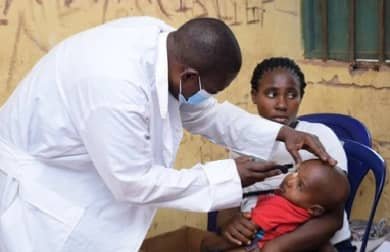Tackling Malaria in Nigeria: A Monumental Step Towards Eradication

Source: http://www.ajc.com
Malaria, a preventable and treatable disease, continues to plague millions, particularly in sub-Saharan Africa. With over 263 million malaria cases and nearly 600,000 deaths globally in 2023, the fight against malaria remains one of the most critical public health challenges, especially in African nations. Nigeria, the continent’s most populous country, shoulders the largest burden, accounting for approximately a quarter of all malaria cases worldwide. The severity of the situation has prompted concerted efforts to combat the disease, with the latest development being the introduction of the Oxford-developed malaria vaccine, which holds promise for drastically reducing the impact of this disease on Nigerian children.
The State of Malaria in Nigeria
Nigeria’s malaria burden is staggering. Despite years of efforts to combat the disease, the country continues to experience a high number of cases and deaths. The disease is particularly dangerous for children under the age of five and pregnant women, who are most vulnerable to its severe effects. Factors such as Nigeria’s large population (over 210 million), favorable climate for mosquito breeding, and inadequate access to healthcare and preventive measures exacerbate the spread of malaria. In regions like Bayelsa state, malaria is so ubiquitous that it is almost seen as a normal part of life, with entire families regularly affected.
The recent report from the World Health Organization (WHO) further underscores the gravity of the situation. In 2023, there were 263 million malaria cases and 597,000 deaths globally, with a substantial percentage of these deaths occurring in African countries, especially among young children. WHO Director-General, Dr. Tedros Adhanom Ghebreyesus, remarked that “No one should die of malaria,” calling for a more robust global response to the disease. Although malaria deaths have decreased by 16% in the African region since 2015, much work remains to be done.
Introducing the Malaria Vaccine in Nigeria
In an effort to reduce the impact of malaria, Nigeria has launched a vaccination campaign for young children. This new malaria vaccine, developed by Oxford University, has shown more than 75% effectiveness in preventing severe disease and death during the first year of administration. What makes this vaccine particularly groundbreaking is that its protection extends for up to one more year when a booster dose is given, offering hope for a long-term solution to malaria control.
This initiative marks a monumental step in Nigeria’s quest to eliminate malaria, a disease that has long been entrenched in the country’s health landscape. Health Minister Muhammad Ali Pate called the campaign a “monumental step” in Nigeria’s fight against malaria. Nigeria is one of 17 countries now introducing the malaria vaccine, following in the footsteps of other nations that are part of the global effort to reduce malaria morbidity and mortality.
The rollout of this vaccine is a significant milestone, but it is only one part of the broader malaria control strategy. Malaria is caused by a parasite transmitted through the bites of infected mosquitoes, and traditional preventive measures, such as the use of insecticide-treated bed nets and indoor spraying of insecticides, continue to be essential components of the fight.
Challenges in Malaria Control
While the introduction of the malaria vaccine is promising, Nigeria still faces numerous challenges in controlling the disease. Experts point to several key factors contributing to the high malaria burden:
- Inadequate Health Infrastructure: Nigeria’s health system, already strained by a growing population and limited resources, faces significant challenges in providing effective malaria treatment and prevention to all affected individuals. This includes insufficient healthcare facilities, poor medical staff training, and inadequate surveillance systems.
- Drug and Insecticide Resistance: The rise of drug-resistant strains of the malaria parasite and resistance to insecticides used in bed nets and sprays complicates efforts to eradicate the disease. These factors make it harder to control the spread of malaria and increase the cost and difficulty of treatment.
- Limited Access to Preventive Tools: In rural and underserved areas, access to essential preventive tools, such as treated bed nets, remains limited. Families in these regions often lack the financial resources to purchase necessary malaria prevention items, and some local communities are not fully aware of the importance of using bed nets or undergoing regular malaria tests.
- Poor Sanitation and Environmental Factors: Nigeria’s tropical climate, combined with poor sanitation and unclean water sources, creates an environment conducive to the breeding of mosquitoes. Stagnant water from poor drainage systems and open waste dumping areas provide ideal breeding grounds for malaria-carrying mosquitoes.
Recommendations for Stakeholders
To build on the momentum created by the malaria vaccination campaign and address the ongoing challenges in malaria control, the following actions are recommended for relevant stakeholders:
1. Government
- Increase Funding for Malaria Control: The Nigerian government must allocate more resources to malaria prevention, diagnosis, and treatment programs. This includes investing in healthcare infrastructure, especially in rural areas, and improving access to malaria prevention tools like treated bed nets.
- Strengthen Surveillance Systems: Robust malaria surveillance systems should be implemented to track and respond to outbreaks quickly. Data-driven decision-making is crucial for targeting interventions where they are most needed.
- Enhance Public Awareness Campaigns: Increased public education on malaria prevention, including the importance of bed nets, proper sanitation, and seeking timely treatment, can help reduce transmission.
2. International Organizations and Donors
- Support Vaccine Rollout: WHO and other international organizations should continue supporting the malaria vaccine rollout, ensuring that vaccines reach all affected communities, especially in rural and hard-to-reach areas.
- Enhance Coordination with National Governments: International organizations must collaborate more closely with national governments to strengthen health systems, improve access to healthcare, and ensure that malaria control efforts are comprehensive and sustainable.
3. Private Sector
- Innovative Solutions for Affordable Access: The private sector should play a pivotal role in developing and distributing affordable malaria prevention tools, including insecticide-treated nets and affordable medicines. Partnerships with governments and NGOs can help expand access to these tools in underserved communities.
4. Communities
- Engage in Preventive Measures: Local communities must be proactive in adopting preventive measures such as using bed nets, maintaining clean environments to eliminate mosquito breeding grounds, and seeking early medical treatment for suspected malaria.
Conclusion
Malaria remains a major public health threat in Nigeria, but the introduction of a malaria vaccine provides new hope in the fight against the disease. While the vaccine is a monumental step forward, it is clear that a multi-pronged approach that includes improved healthcare infrastructure, increased funding for prevention, and robust community engagement is necessary to tackle the malaria burden comprehensively. With concerted effort and global collaboration, the dream of eliminating malaria in Nigeria and across Africa can become a reality.
Source of Image: http://www.ajc.com





